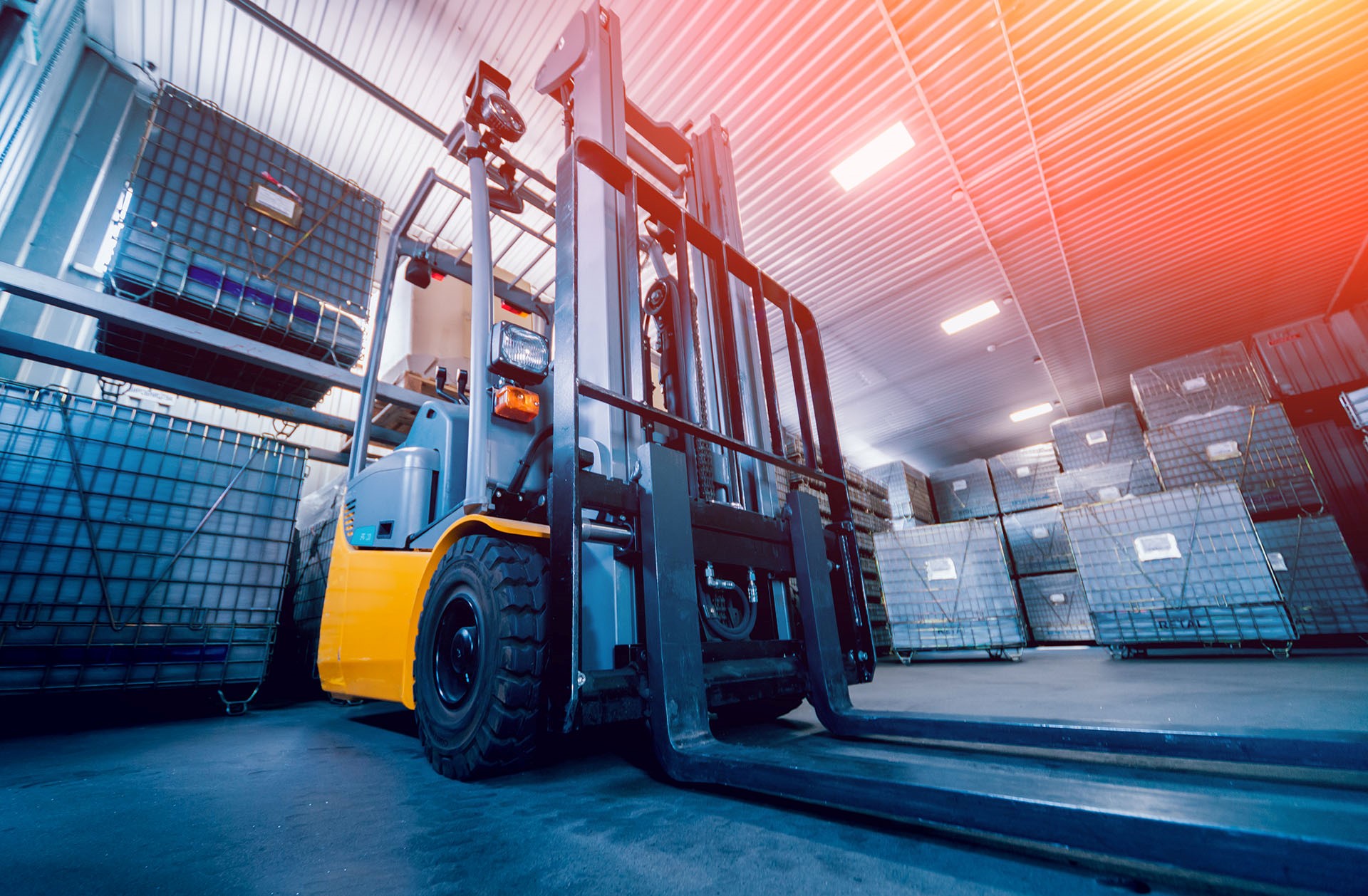Future-Forward Forklifts: Innovations Reshaping Logistics
Introduction
Embarking on a transformative journey, the forklift truck industry, a cornerstone of contemporary logistics, has evolved significantly due to technological innovations. From its modest origins to its present state, forklifts have matured into intricate machines that redefine material handling and supply chain operations. According to NMSC analysis, the forklift truck industry is expected to cross USD 75 billion in 2030, with a CAGR of 7.2% during the forecast period, 2023–2030.
This blog meticulously explores the influential technological advancements revolutionizing the industry, focusing on enhancing efficiency, safety, and sustainability. The incorporation of automation, precise control systems, and electric power stands out as the primary factors leading to changes in operations and reducing environmental impacts. The convergence of data analytics with forklift technology marks an era of predictive maintenance, optimizing overall performance. As these innovations intertwine, the forklift industry stands at the forefront of logistical evolution, poised to reshape how goods traverse supply chains. This emphasizes a future where efficiency seamlessly aligns with safety and ecological responsibility.
Evolution of Forklift Technology
Originating in the early 20th century, forklift trucks have undergone a remarkable evolution from their mechanical roots. Initially reliant on combustion engines, the contemporary forklift landscape showcases a diverse array of power sources, ranging from electric and hydrogen to innovative hybrid models. This section delves into the historical milestones, underscoring the pivotal role that forklifts play in shaping the landscape of modern logistics. The transition from traditional combustion engines to more sustainable and efficient power alternatives signifies a profound shift. This also mirrors the industry's commitment to technological advancements that align with operational efficiency and environmental responsibility. These forklift transformations embody the industry's adaptability and continuous pursuit of cutting-edge solutions in the dynamic realm of material handling and supply chain management.
Impactful Technological Advancements
Electric-Powered Forklifts: The increasing adoption of electric forklifts stems from their environmentally conscious attributes and economic advantages. These vehicles significantly reduce emissions, operate quietly, and incur lower maintenance costs, perfectly aligning with sustainability objectives. Their eco-friendly profile and cost efficiency make them a favorable choice, addressing environmental concerns while delivering economic benefits. This, in turn, reshapes the landscape of forklift technology.
Recently, Toyota Material Handling introduced a new line of electric and pneumatic forklifts designed for indoor and outdoor applications, featuring robust construction, lift capacities ranging from 3,000 to 7,000 pounds, and advanced technologies to enhance productivity and safety while prioritizing energy efficiency.
Automated Guided Vehicles (AGVs): AGVs have spearheaded a paradigm shift in warehouse operations. These vehicles, empowered by cutting-edge navigation and autonomous capabilities, represent a transformative force. Their independent process, driven by sophisticated systems, optimizes efficiency and minimizes manual intervention. AGVs simplify operations, transforming logistics through precise and automated material movement. This ushers in an era of increased productivity and decreased dependence on manual labor.
For example, at the Advanced Factories Expo in Barcelona, Kivnon launched the K55 Pallet Stacker, an AGV lifting load of up to 1,200 Kg to 1,500 mm. It navigates mapped routes and collaborates with site machinery, ensuring reliable performance. Kivnon's approach offers cost-effective, diverse AGVs and autonomous mobile robots (AMRs) for varied industry needs.
IoT Integration: The integration of the Internet of Things (IoT) elevates forklift functionality by enabling real-time data gathering, predictive maintenance, and heightened operational efficacy. Through sensors and connectivity, forklifts acquire and process valuable insights, optimizing productivity. This technology empowers operators with predictive maintenance alerts, ensuring proactive interventions. Enhanced connectivity equips these machines with the intelligence to address performance concerns, transforming forklifts into smart assets that efficiently adapt to operational demands.
Assured Telematics, a new solution for tracking, monitoring, and maintaining forklifts lately partnered with IoT-based companies, including BeWhere and Geotab, Inc., to offer detailed insights for indoor and outdoor electric and propane forklifts tracking. It guarantees precise tracking through WiFi, Bluetooth Low Energy (BLE), and Global Positioning System (GPS), overseeing location, driving metrics, and safety factors.
Integration of Artificial Intelligence (AI): AI advancements revolutionize forklift operations by fostering predictive analytics for inventory management, route optimization, and adaptive performance. These technologies empower decision-making by offering real-time insights into inventory levels and demand fluctuations. By continually analyzing data, forklifts adaptively optimize routes, mitigating delays and enhancing efficiency. The integration of AI streamlines processes, marking a pivotal shift toward data-driven, agile, and optimized forklift operations. Recently, Toyota Material Handling Japan (TMHJ) launched an autonomous lift truck with AI-based technology that autonomously identifies truck and load placement, generating automated travel routes for loading operations.
Enhanced Safety Features: Incorporating sophisticated safety systems such as collision avoidance, cameras, and sensors significantly prioritize workplace safety, marking a substantial reduction in accidents and elevating operator confidence. These cutting-edge features bolster operational safety by providing real-time alerts and enhancing situational awareness. By proactively identifying potential risks and hazards, these systems mitigate accidents, ensuring a secure environment and instilling operators with the confidence to navigate complex scenarios with assured safety measures in place.
For example, Toyota Material Handling introduced Toyota Assist, an advanced suite of operator awareness tech that enhances forklift performance in challenging environments. Featuring pedestrian detection and intelligent control systems, it prioritizes safety, reflecting the company's commitment to a secure workplace.
Future Trends and Innovations:
Hydrogen Fuel Cells: Emerging hydrogen-powered forklifts promise environmental sustainability by enabling quicker refueling and extended operational uptime. Their eco-friendly nature and prolonged usage hours have the potential to revolutionize the industry's environmental footprint, offering a greener alternative and addressing sustainability concerns in material handling operations.
For instance, KION Group set to produce hydrogen fuel cell systems for its industrial trucks, addressing the growing demand for sustainable intralogistics with swift refueling capabilities. With over 1.7 million industrial trucks globally, this move reinforces the company's commitment to eco-friendly solutions.
Augmented Reality/Virtual Reality (AR/VR) Applications: AR/VR innovations redefine forklift training, enriching operator competencies and safety via immersive simulations. These technologies create lifelike scenarios, offering hands-on practice in a risk-free environment, sharpening skills, and fortifying safety protocols, ultimately optimizing operator proficiency and workplace safety.
Recently, PIXO VR introduced a new virtual reality module called "Forklift Simulator" on its Apex platform. This module, created by ChalkBites, allows users to learn to drive a forklift in VR and prepare for a forklift certification exam. It includes exercises such as checklists, operating the forklift, loading and unloading, exploring a 3D model of a forklift, and taking a quiz to test forklift knowledge.
Conclusion
The blog delineates the dynamic evolution of the forklift truck industry driven by technological strides. Projections foresee a substantial growth to USD 75 billion by 2030, propelled by innovations aimed at efficiency, safety, and sustainability. These advancements, from electric-powered forklifts to AI-driven systems and IoT-enabled solutions, signal a transformative shift toward smarter, safer, and eco-conscious material handling. Emerging trends such as hydrogen fuel cells and AR/VR applications underscore the industry's commitment to sustainability and enhanced operator training, redefining the future of forklift operations.
About The Author
 Shyam Gupta is a passionate and highly enthusiastic researcher with more than four years of experience. He assists clients in overcoming difficult business challenges by providing actionable insights through exhaustive research. He has been closely monitoring a number of industries, such as Consumer Electronics, Robotics, and Electric Vehicles. He has a keen interest in writing articles and uses blogs as a medium to share his thoughts. He spends his time reading and painting, when not keeping up with industry news. The author can be reached at shyam.gupta@nextmsc.com
Shyam Gupta is a passionate and highly enthusiastic researcher with more than four years of experience. He assists clients in overcoming difficult business challenges by providing actionable insights through exhaustive research. He has been closely monitoring a number of industries, such as Consumer Electronics, Robotics, and Electric Vehicles. He has a keen interest in writing articles and uses blogs as a medium to share his thoughts. He spends his time reading and painting, when not keeping up with industry news. The author can be reached at shyam.gupta@nextmsc.com


Leave a Reply